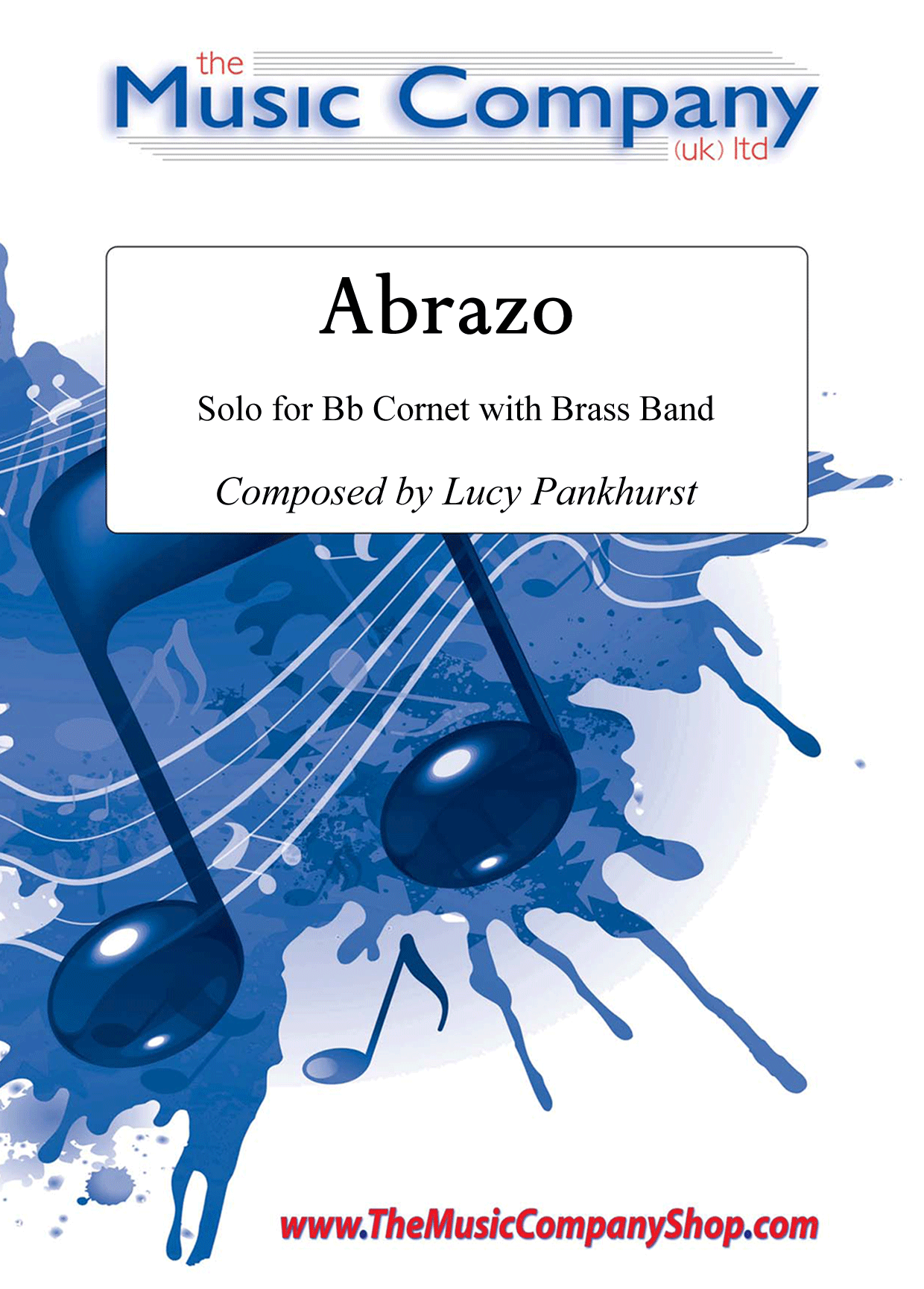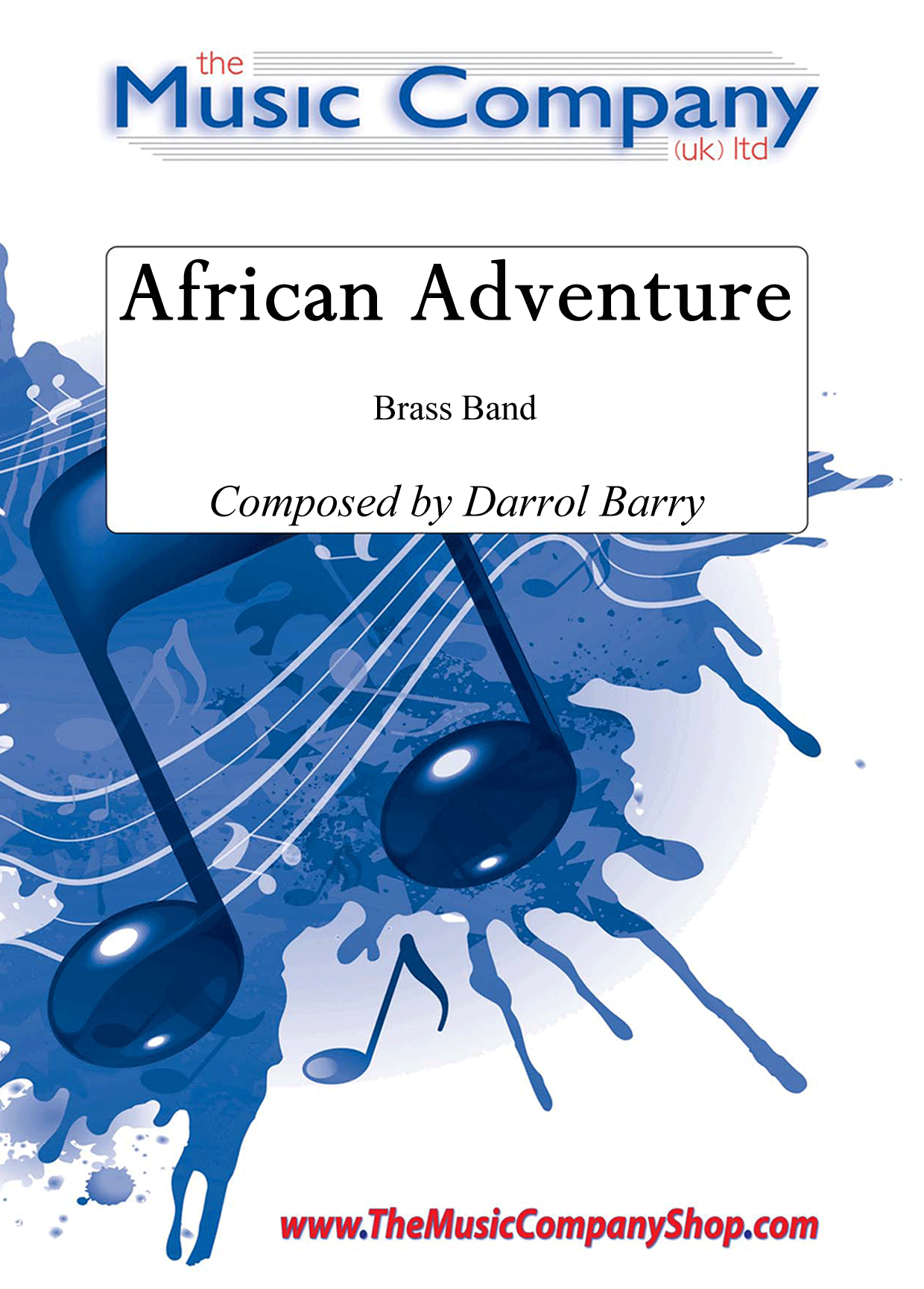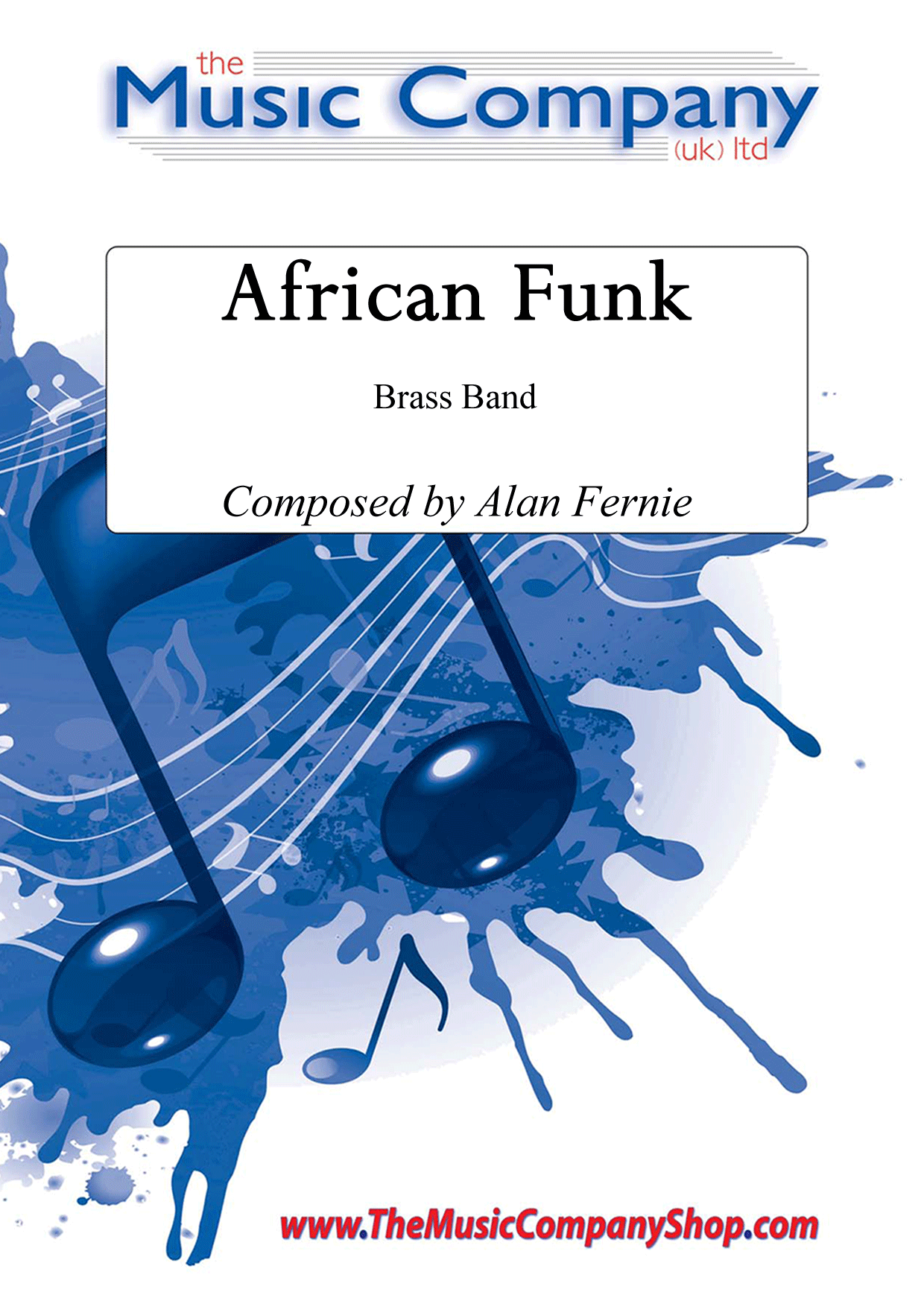Results
-
 £30.00
£30.00Leviathan - Paul Denegri
Leviathan began its evolution as a workshop work inspired by the poem written by Heathcote Williams entitled; Whale Nation. At the time of this workshop the tentet brass repertoire existed of extremely well written original or arranged works of a lighter nature but there was a shortage of works with a greater emotional depth and edge, hence Leviathan's early conception as an atmospheric and emotive work. The workshop piece explored whale sound and song and was a 25-minute work in two parts. After many years of the workshop sketches sitting dormant the new work Leviathan is a much shorter and concise work. It contains only one of the original melodic themes of the workshop work. Leviathan is driven and underpinned by melodic and rhythmic elements. It is a programmed work following the awe inspiring majestic might and beauty of whales through to a hunt scene, the chase and the ultimate demise of earth's largest mammal.
-
 £30.00
£30.00O Tannenbaum - Traditional German Carol
O Tannenbaum (O Christmas Tree) is a German Christmas song. Based on a traditional 15th century folk song it became associated with the fir tree, traditionally used as a Christmas tree in German tradition. By the early 20th century it was being sung as a Christmas carol. The modern lyrics were written in 1824 by Ernst Anschutz, sourcing his material from an old 16th century Silesian folk song by Melchior Frank. My arrangement presents the traditional material in a full-on, big band swing style.
-
 £30.00
£30.00Silent Night - Franz Gruber
This carol (one the most popular in the world) was composed in 1818 by Franz Gruber to words by Joseph Mohr. It was first performed on Christmas Eve 1818. This took place in St Nicholas parish church in the village of Oberndorf near Salzburg, Austria. A popular (but spurious) tale tells how the priest Joseph Mohr, whilst making preparations for the Christmas Eve mass, found the church organ to be not working. This supposedly was caused by rats having chewed through the leather bellows of the organ. Joseph Mohr, having previously written the words presented them to Franz Gruber (a local schoolmaster and organist) in the hope that he could set them to music ready for use that same day, but on guitar rather than the broken organ. It is Gruber's distinctive melody and simple harmonic accompaniment that has allowed this carol to become so enduring.
-
.NOBOX-1.jpg) £30.00
£30.00Wade in the Water (Bass Tbn) - Traditional
Wade in the Water is a Negro Spiritual. The song relates to both the old and new testaments and reflects the Israelites escape out of Egypt. There is a popular belief that Wade in the Water contained explicit instructions to fugitive slaves on how to avoid capture. Wade in the Water has inspired a wide range of artists and been covered by Bob Dylan, Ramsey Lewis, Herb Albert, Big Mama Thornton and Johnny Griffin. In this arrangement by Mark Bassey, Mark has been influenced by Norman Symmons fine arrangement for the Johnny Griffin orchestra and has been written to feature the multi-talented Jazz Trombonist and member of Superbrass, Andy Wood.
-
.NOBOX-1.jpg) £30.00
£30.00Wade in the Water (Euph) - Traditional
Wade in the Water is a Negro Spiritual. The song relates to both the old and new testaments and reflects the Israelites escape out of Egypt. There is a popular belief that Wade in the Water contained explicit instructions to fugitive slaves on how to avoid capture. Wade in the Water has inspired a wide range of artists and been covered by Bob Dylan, Ramsey Lewis, Herb Albert, Big Mama Thornton and Johnny Griffin. In this arrangement by Mark Bassey, Mark has been influenced by Norman Symmons fine arrangement for the Johnny Griffin orchestra and has been written to feature the multi-talented Jazz Trombonist and member of Superbrass, Andy Wood.
-
 £29.99
£29.99Christ lag in Todesbanden Georg BAhm Arr. Joseph Knight
"Christ lag in Todesbanden" is an Easter hymn by Martin Luther. Its melody is by Luther and Johann Walter. Both the text and the melody were based on earlier examples. This setting is by Georg Bohm and works very well for the brass band. This arrangement is presented without percussion.
Estimated dispatch 5-9 working days
-
 £30.00
£30.00Abrazo - Lucy Pankhurst
Lucy Pankhurst wrote this piece in response to an open request from Jim Hayes, when he asked for new solos to perform. Abrazo was then selected to feature on his solo CD Dial M for Midnight.The title Abrazo translates as 'embrace', but is also the term given to the dancing frame of the Tango; where the partners change stance by pulling and pushing the frame, yet always remaining in physical contact with each other. This technique is suggested in the music by the soloist breaking away from the band with virtuoso interjections, before being 'embraced' again by the full band.When the cornet soloist eventually breaks completely free in the cadenza passage, the music becomes much more agitated and moves away from the original Tango, transforming briefly into a Flamenco to finish with a flourish.
In Stock: Estimated dispatch 3-5 working days
-
 £25.95
£25.95African Adventure - Darrol Barry
An upbeat, fun piece which exudes positive-vibes from the outset. This original composition by Darrol Barry for brass band is a great addition to concert repertoire. A nice balance of strong rhythm, touches of featured obligato and a catchy melody.Darrol Barry composed this work in support of a charitable project, known in 2005 as Brass Band Aid. The organisation called for original compositions to be included in a follow-up CD release - Into Africato help raise funds for projects in Adet, Africa, and to build awareness of theMake Poverty History campaign. African Adventure was featured on the CD with a recording by the Black Dyke Band.Now that the original BBA projects are complete, funds raised by the titles we publish from the Brass Band Aidseries continue to support other music-related projects on a regular basis.Look and Listen (performance courtesy of Bertnes Brass 2016):
In Stock: Estimated dispatch 3-5 working days
-
 £20.00
£20.00African Funk - Alan Fernie
A fun, upbeat number, playable by all levels and offering a wealth of percussion opportunities for the whole band!Alan Fernie composed this work in support of a charitable project, known in 2005 as Brass Band Aid. The organisation called for original compositions to be included in a follow-up CD release - Into Africato help raise funds for projects in Adet, Africa, and to build awareness of theMake Poverty History campaign. African Adventure was featured on the CD with a recording by the Nova Scotia International Tattoo Brass Band.Now that the original BBA projects are complete, funds raised by the titles we publish from the Brass Band Aidseries continue to support other music-related projects on a regular basis.Look and Listen (courtesy of Neo Brassband from their performance at Heywood Civic Hall in 2016):
In Stock: Estimated dispatch 3-5 working days
-
 £15.00
£15.00Anvil Chorus from Il Trovatore - Verdi
Programme Notes from Andrew Duncan:Like many of the arrangements in the Flexi-Collection - Popular Classics Series I have simplified the rhythms and time signature, etc. I have also omitted trills for ease of playing.Dynamics form a very important aspect of this arrangement and it is important to observe these, especially the p markings. Every dynamic from p through to ff is used as well as some crescendos.The 1st Cornet/Trumpet part is perhaps more difficult than in some of the other arrangements in the series, but the other parts are fairly simple in comparison.The Percussion part (which is optional) is unusual in that it calls for two 'Anvils' to be played. However if these are not available then a good effect can be obtained by hitting two pieces of metal with metal hammers.The Flexi-Collection ApproachFlexible scoring tailored to your needs - A perfect solution for expanding the repertoire of training and junior brass bands. The Flexi-Collection currently offers two series - Popular Classics and World Tour. Based on four-part harmony, these collections provide groups with the advantage of complete flexibility when they may not be balanced. If players or instruments are missing, the show can still go on!The Flexi-Collection - Popular Classics Series, encapsulates all that is great about the wonderful range of musical styles produced by Holst, Elgar, Handel, Verdi, Tchaikovsky, Grieg, Bizet and Parry.The thoughtful scoring and arranging by Andrew Duncan now means that groups of all abilities have access to a truly flexible set of music for their needs. With world parts, rudimentary theory, terminology translations and large format typesetting, The Flexi-Collection ticks all the boxes when it comes to bringing interesting music to the training and junior band/brass group environment.Available for Brass Band - The Flexi-Collection offers flexibility in every sense of the word.(Available individually or as part of the money-saving Flexi-Collection Popular Classics Album)
In Stock: Estimated dispatch 3-5 working days
